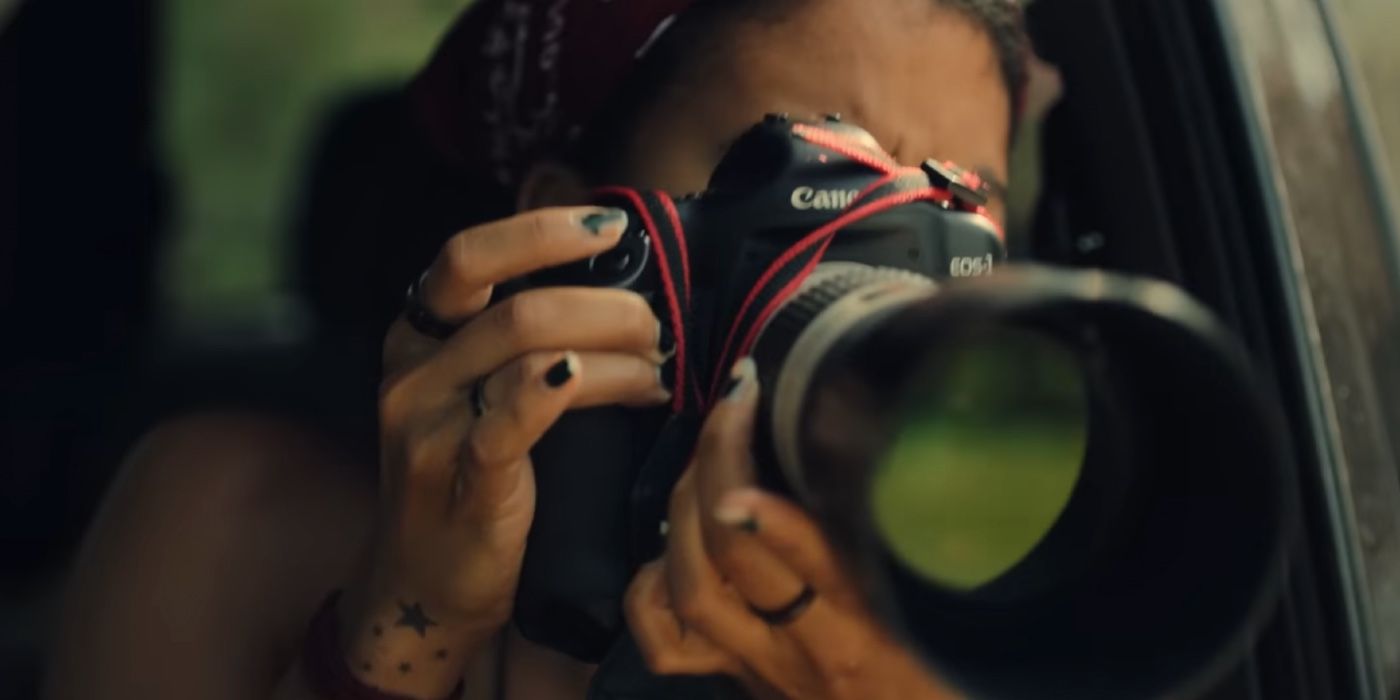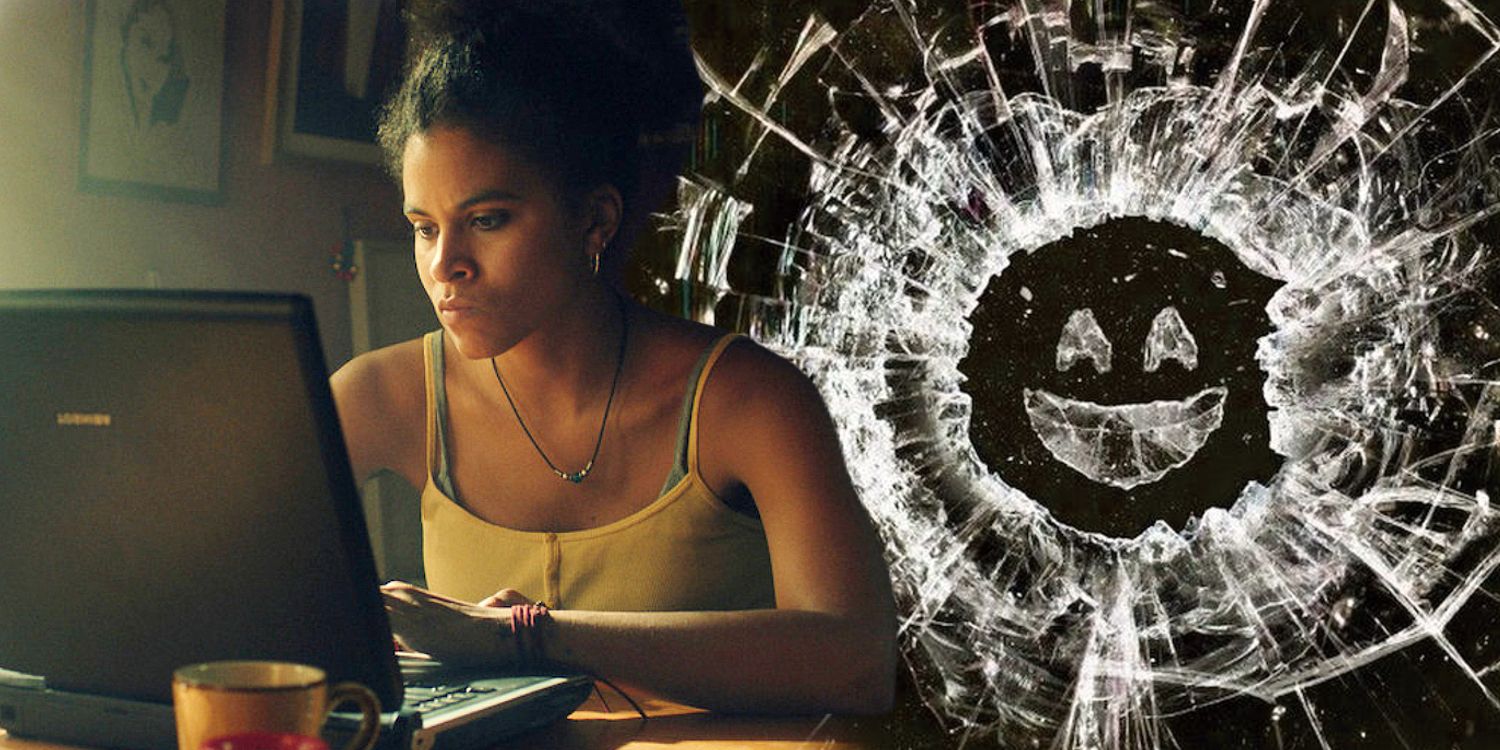
Unveiling the Hidden Gems: Black Mirror's Mazey Day Twist Puts Critics in a Spin

Unveiling the Controversial Twist in Black Mirror's Mazey Day Episode: An Ingenious Metaphor Examining the Depths of Human Nature Beyond Technology
WARNING! Spoilers ahead for Black Mirror season 6, episode 4 "Mazey Day." The highly anticipated sixth season of Black Mirror debuted on Netflix on June 15th, sparking mixed reactions from viewers. Episode 4, titled "Mazey Day," in particular, received significant backlash due to its unexpected twist. However, these criticisms largely overlook the true essence of the episode and the overarching ethos of Black Mirror. As the 26th episode of the series, "Mazey Day" revolves around the story of paparazzo Bo and the troubled Hollywood actress Mazey Day, who harbors a dark secret. The narrative unfolds against the backdrop of 2006 Los Angeles, during a time when paparazzi culture was rampant and all-consuming.
One of the ways in which "Mazey Day" deviates from the typical Black Mirror formula is by being set in the recent past. Nevertheless, the episode's most noteworthy aspect is its shocking twist. Throughout its six-season run, Black Mirror has become renowned for its ability to deliver mind-bending and unexpected plot twists. From its very first episode, "The National Anthem," creator Charlie Brooker demonstrated his willingness to shock viewers, and the show has maintained this tradition by incorporating surprising twists in nearly every installment. However, "Mazey Day" has faced criticism for its unconventional sequence of events.
Mazey Day Backlash Explained: Why Black Mirror Season 6's Twist Is Controversial
The reveal in "Mazey Day" has been the most talked-about twist in Black Mirror season 6. The episode follows paparazzo Bo as she embarks on a search for actress Mazey Day. Throughout the story, Mazey struggles with personal issues, leading her to commit a hit-and-run and hide from the world. Towards the end, it is revealed that Mazey is actually a werewolf, which has sparked a significant amount of backlash. This twist has raised concerns as it relies on a well-known horror trope rather than the innovative sci-fi storytelling that Black Mirror is known for.
Some loyal fans of Black Mirror feel that the werewolf reveal in "Mazey Day" deviates too much from the show's typically thought-provoking episodes. However, it is important to consider that there might be a deeper meaning behind this unexpected plot twist, as well as the larger themes explored throughout Black Mirror's six seasons.
Mazey Day's Big Twist Is A Smart Metaphor
The episode "Mazey Day" in Black Mirror exhibits the intricate layers that are characteristic of the show. At first, the werewolf twist may appear absurd, but upon closer examination, it becomes clear that it serves as a metaphor to convey Brooker's central message. The reveal of the werewolf is actually a scathing critique of how celebrity culture dehumanizes individuals. The relentless pursuit of Mazey by the paparazzi, even as she transforms into a werewolf, depicts how she is viewed merely as an object to be hunted, exploited, and profited from.
This mistreatment by the paparazzi towards Mazey is reminiscent of the real-life experiences of celebrities in times of personal turmoil, such as Britney Spears’ well-documented “meltdown” in 2007. Just like Spears, Mazey is subjected to appalling treatment by the paparazzi and the media during a dark period in her life. It is no coincidence that "Mazey Day" is set in the same era, drawing parallel to the cultural climate. However, by focusing solely on Brooker’s method of conveying this message instead of the message itself, the true point of "Mazey Day" - a reflection on the impacts of paparazzi culture and the commodification of fame - is effectively diluted.
Black Mirror Is About Human Nature, Not Just Technology
The main criticism surrounding the twist in "Mazey Day" is that it relies on supernatural elements instead of technology, which goes against the typical focus of Black Mirror episodes. Black Mirror, known for its exploration of technology's impact on humanity, is often considered a sci-fi show that highlights the dangers of technology. However, the creator of Black Mirror, Charlie Brooker, has emphasized that the show is more about human nature than futuristic technology. In a 2014 interview with The Guardian, Brooker stated, "It’s not a technological problem we have, it’s a human one."
More recently, Brooker expressed dissatisfaction with the perception that Black Mirror solely portrays technology as negative. He clarified that the show's message is not "tech is bad," but rather that "people are messed up" (via GamesRadar). "Mazey Day" exemplifies this point. Initially, Bo wants to leave her profession as a photographer after inadvertently causing someone to commit suicide. However, by the end of the episode, she is willing to take a photo of a deceased woman's body because she knows it will financially benefit her. Similar to other impactful Black Mirror episodes, "Mazey Day" serves as a cautionary tale about human nature, a crucial aspect often overlooked by those who criticize the episode for its supernatural twist.
















